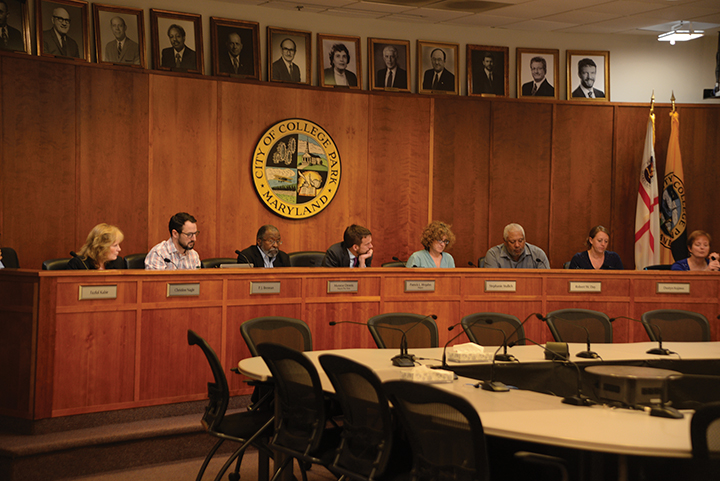The College Park City Council is divided on whether questions about non-U.S. citizens voting in municipal elections in the future should go to referendum on the Nov. 7 ballot.
A possible amendment to the city’s charter was introduced on June 13 that would eliminate U.S. citizenship as a voter registration requirement. The council could decide to vote to put the issue to an advisory referendum, which is non-binding, in some form at their Sept. 12 regular meeting.
They may also consider to adopt the charter amendment as is, or with possible changes, such as limiting it to green card holders, city clerk Janeen Miller said Wednesday afternoon.
District 3 Councilman Robert Day does “not believe that this issue should be handled through a referendum,” he said. “If we were to do a referendum with a civil rights issue, we’d never have the people being affected included in the vote.”
Day cited the women’s suffrage and the civil rights movements as examples.
[Read more: College Park residents clash over proposal to let non-citizens vote in city elections]
“If, at that time, we would’ve left that up to a referendum, blacks would not be able to vote today,” he said.
Mayor Patrick Wojahn said he thinks the issue shouldn’t go to referendum, regardless of the question’s wording, but noted it’s ultimately up to the council. Wojahn agreed it’s problematic when those who would benefit the most from the change would not be able to vote in the referendum.
However, District 1 Councilman Fazlul Kabir is in favor of a question about the issue going to referendum.
“The city charter is a very sacred document and we need to take a lot of care and be very careful when we make any change to it,” Kabir said. “We have an opportunity right now to put discussion to the ballot, to referendum, because the election is just around the corner.”
Kabir said a referendum is “a wonderful opportunity” to get resident input. Because the referendum is non-binding, it’s really “just a way to see what kind of support we have among the existing voters,” he said.
[Read more: With mayoral race looming, College Park City Council is considering some election changes]
Kabir added he’s mindful of the fact that non-citizens wouldn’t be able to vote in the referendum, and he isn’t discounting their voices.
“I understand it is not a perfect opportunity,” Kabir said. “But it is a good opportunity.”
District 2 Councilman P.J. Brennan has previously said he does not think it is best to bring civil rights issues to referendum.
“When the majority have asked to make a decision for a minority group, civil rights referendums routinely tend to fail,” Brennan said.
In order for the discussion of non-citizen municipal voting rights to move forward, the council needs “to hear from everybody,” Day said, adding that they have heard from very few non-voting College Park residents.
Non-citizens have been hesitant to speak out on the issue because of the current national political climate, Day said.
President Donald Trump, who has promised to crack down on illegal immigration, ordered an end to the Deferred Action for Childhood Arrivals program Tuesday. It is a federal program that allows some undocumented immigrants who came to the United States as children to stay in the country in two-year blocks. As of fall 2016, the University of Maryland had 113 students under the DACA program.
“The only voices we’re hearing from are the people that are voters,” Day said. “We have to figure out a way to engage [non-citizens] in conversation without making them feel like it’s a dangerous thing to do.”
A decision to place any question on the ballot must be finalized no later than Sept. 19 in order to meet the ballot deadline, according to the Sept. 5 work session agenda.



